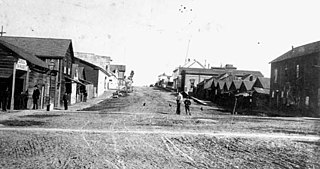 W
W1885 Chinese expulsion from Eureka was an ethnic cleansing event that took place in Eureka, California on February 7, 1885.
 W
WAngel Island Immigration Station was an immigration station located in San Francisco Bay which operated from January 21, 1910 to November 5, 1940, where immigrants entering the United States were detained and interrogated. Angel Island is an island in San Francisco Bay. It is currently a State Park administered by California State Parks and a California Historical Landmark. The island was originally a fishing and hunting site for Coastal Miwok Indians, then it was a haven for Spanish explorer Juan Manuel de Ayala. Later, it was developed as a cattle ranch, then, starting with the Civil War, the island served as a U.S. Army post. During the island's Immigration Station period, the island held hundreds of thousands of immigrants, the majority from China, Japan, India, Mexico and the Philippines. The detention facility was considered ideal because of its isolated location, making it very easy to control immigrants, contain outbreaks of disease, and enforce the new immigration laws. The station is listed on the National Register of Historic Places under the title Angel Island, U.S. Immigration Station, and is a National Historic Landmark. The station is open to the public as a museum – "a place for reflection and discovery of our shared history as a nation of immigrants".
 W
WAngry Asian Man is an Internet blog founded in 2001 by Phil Yu. The blog focuses on Asian American news, media, and politics. The Washington Post calls Angry Asian Man "a daily must-read for the media-savvy, socially conscious, pop-cultured Asian American." An accompanying podcast, entitled Sound and Fury: The Angry Asian Podcast, was launched in May 2012 and features interviews with Asian Americans.
 W
WAnti-Chinese sentiment has existed in the United States since the mid-19th century, shortly after Chinese immigrants first arrived in the United States. It was manifested in the 1860s, when the Chinese were employed in the building of the world's First Transcontinental Railroad, culminating in the federal Chinese Exclusion Act of 1882, which banned further Chinese immigration as well as naturalization. Its origins can be traced to the American merchants, missionaries, and diplomats who sent home from China "relentlessly negative" reports of the people they encountered there. These attitudes were transmitted to Americans who never left North America, triggering talk of the Yellow Peril, and continued through the Cold War during McCarthyism. Some modern anti-Chinese sentiment may be the result of China's rise as a major world power seen to be at the expense of other countries.
 W
WThe Asian American Journalists Association (AAJA) is a 501(c)3 nonprofit educational and professional organization based in San Francisco, California with more than 1,500 members and 21 chapters across the United States and Asia. The current president is Washington Post reporter Michelle Ye Hee Lee. The executive director is Naomi Tacuyan Underwood.
 W
WThe Asian American Legal Defense and Education Fund (AALDEF) is a New York-based national organization founded in 1974 that protects and promotes the civil rights of Asian Americans. By combining litigation, advocacy, education, and organizing, AALDEF works with Asian American communities across the country to secure human rights for all.
 W
WAsian Americans are Americans of Asian ancestry. The term refers to a panethnic group in the United States. Although it had historically been used to describe all the indigenous peoples of the continent of Asia, the contemporary usage of the term "Asian" generally excludes people with ethnic origins in certain parts of Asia, such as West Asia, who are now considered Middle Eastern Americans. This includes people who indicate their race(s) on the census as "Asian" or reported entries such as "Chinese, Filipino, Indian, Japanese, Korean, Vietnamese, and Other Asian". In 2018, Asian Americans comprised 5.4% of the U.S. population; including multiracial Asian Americans, that percentage increases to 6.5%.
 W
WAsian/Pacific American (APA) or Asian/Pacific Islander (API) or Asian Americans and Pacific Islanders (AAPI) is a term sometimes used in the United States to include both Asian Americans and Pacific Islander Americans.
 W
WAn Asian quota is a type of racial quota limiting the number of people of Asian descent in an establishment, a special case of numerus clausus. It usually refers to alleged educational quotas in US higher education admissions, specifically by Ivy League universities against Asian Americans, especially persons of East Asian and South Asian descent starting in the late 1980s. These allegations of discrimination have been denied by US universities. Asian quotas have been compared to earlier claims of Jewish quotas, which are believed to limit the admissions of a model minority from the 1910s to the 1950s. Jewish quotas were denied at the time, but their existence is rarely disputed now. Some have thus called Asian-Americans "The New Jews" of university admissions.
 W
WBattle Hymn of the Tiger Mother is a book by American author and law professor Amy Chua that was published in 2011. It quickly popularized the concept and term "tiger mother" while also becoming the inspiration for the 2014–2015 Singaporean TV show Tiger Mum, the 2015 mainland Chinese drama Tiger Mom, and the 2017 Hong Kong series Tiger Mom Blues.
 W
WThe California Alien Land Law of 1913 prohibited "aliens ineligible for citizenship" from owning agricultural land or possessing long-term leases over it, but permitted leases lasting up to three years. It affected the Chinese, Indian, Japanese, and Korean immigrant farmers in California. Implicitly, the law was primarily directed at the Japanese. It passed 35–2 in the State Senate and 72–3 in the State Assembly and was co-written by attorney Francis J. Heney and California state attorney general Ulysses S. Webb at the behest of Governor Hiram Johnson. Japan's Consul General Kametaro Iijima and lawyer Juichi Soyeda lobbied against the law. In a letter to the United States Secretary of State, the Japanese government via the Japanese Minister of Foreign Affairs called the law "essentially unfair and inconsistent... with the sentiments of amity and good neighborhood which have presided over the relations between the two countries," and noted that Japan felt it was "in disregard of the spirit of the existing treaty between Japan and the United States." The law was meant to discourage immigration from Asia, and to create an inhospitable climate for immigrants already living in California.
 W
WCedar Grove Productions is an independent production company based in Los Angeles, CA., specializing in media and theatre arts representing the Asian Pacific American community. Media projects are educational, with Visual Communications (VC) serving as a non-profit fiscal sponsor.
 W
WCharlie Chan is a fictional Honolulu police detective created by author Earl Derr Biggers for a series of mystery novels. Biggers loosely based Chan on Hawaiian detective Chang Apana. The benevolent and heroic Chan was conceived as an alternative to Yellow Peril stereotypes and villains like Fu Manchu. Many stories feature Chan traveling the world beyond Hawaii as he investigates mysteries and solves crimes.
 W
WDanny Chen was an American U.S. Army soldier who served in Afghanistan in the early 21st century whose death resulted in a military investigation and charges against eight US soldiers, ultimately with four being court martialed.
 W
WVincent Jen Chin was a Chinese American draftsman who was beaten to death by two white men, Chrysler plant supervisor Ronald Ebens and his stepson, laid-off autoworker Michael Nitz.
 W
WThe Chinese Exclusion Act was a United States federal law signed by President Chester A. Arthur on May 6, 1882, prohibiting all immigration of Chinese laborers. Building on the earlier Page Act of 1875 which banned Chinese women from immigrating to the United States, the Chinese Exclusion Act was the first, and remains the only law to have been implemented, to prevent all members of a specific ethnic or national group from immigrating to the United States.
 W
WThe Chinese massacre of 1871 was a racial massacre that occurred on October 24, 1871, in Los Angeles, California, when a mob of around 500 White and Hispanic persons entered Old Chinatown and attacked, bullied, robbed, and murdered Chinese residents in cold blood. The massacre took place on Calle de los Negros, also referred to as "Negro Alley". The mob gathered after hearing that a policeman and a rancher had been killed as a result of a conflict between rival tongs, the Nin Yung, and Hong Chow. As news of their death spread across the city, fueling rumors that the Chinese community "were killing whites wholesale", more men gathered around the boundaries of Negro Alley. A few 21st-century sources have described this as the largest mass lynching in American history.
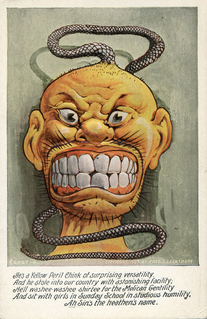 W
WChink is an English-language ethnic slur usually referring to a person of Chinese descent. However, the word is at times indiscriminately used against people who have an East or Southeast Asian appearance. The use of the term is considered highly offensive and racist, and its inclusion in modern works of literature or media has sparked controversies. In the United States, some sources defending Asian Americans have accredited chink as equivalent to nigger.
 W
WThe Congressional Asian Pacific American Caucus (CAPAC), founded on May 16, 1994 by former Congressman Norman Mineta, is a bicameral caucus consisting of members of the United States Congress who have a strong interest in promoting Asian American and Pacific Islander (AAPI) issues and advocating the concerns of Asian Americans and Pacific Islanders. While CAPAC describes itself as non-partisan, all of its current members are Democrats, though some past members, such as Joseph Cao, have been Republicans. This caucus generally includes members of East Asian, Southeast Asian, South Asian or Pacific Islander descent, members with high concentrations of Asian Americans and Pacific Islanders in their district, or those with an interest in AAPI issues.
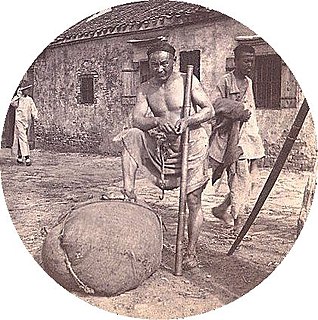 W
WA coolie is a low-wage laborer, typically of Asian descent. The term is considered outdated and offensive.
 W
WThe demographics of Asian Americans describe a heterogeneous group of people in the United States who trace their ancestry to one or more Asian countries.
 W
WFlower Drum Song was the eighth musical by the team of Rodgers and Hammerstein. It is based on the 1957 novel, The Flower Drum Song, by Chinese-American author C. Y. Lee. It premiered on Broadway in 1958 and was then performed in the West End and on tour. It was adapted for a 1961 musical film.
 W
WHa Ling Peak is a peak at the northwestern end of Mount Lawrence Grassi — a mountain located immediately south of the town of Canmore just east of the Spray Lakes road in Alberta's Canadian Rockies. It was previously named Chinaman's Peak but the name was changed to be less offensive. It was the subject of a 2018 CBC Documentary titled 'Ha Ling Peak' that follows the controversy and renaming of the mountain.
 W
WThe Hapa Project is a multiracial identity art project created by American artist Kip Fulbeck. The project embodies a range of media, including a published book, traveling photographic exhibition, satellite community presentations, and online communities.
 W
W"The Heathen Chinee", originally published as "Plain Language from Truthful James", is a narrative poem by American writer Bret Harte. It was published for the first time in September 1870 in the Overland Monthly. It was written as a parody of Algernon Charles Swinburne's Atalanta in Calydon (1865), and satirized anti-Chinese sentiment in northern California.
 W
WThe Hells Canyon massacre was a massacre where thirty-four Chinese goldminers were ambushed and murdered in May 1887. In 2005, the area was renamed Chinese Massacre Cove, and a memorial was placed there in 2012 in three languages, Chinese, English, and Nez Perce.
 W
WHyphen was an American print and online magazine, founded in 2002 by a group of San Francisco Bay Area journalists, activists, and artists including Melissa Hung, a former reporter for the Houston Press and East Bay Express; Claire Light, former executive director at Kearny Street Workshop; Yuki Tessitore, of Mother Jones; Mia Nakano, photojournalist, filmmaker Jennifer Huang, and Stefanie Liang, a graphic designer from Red Herring magazine. Its advisory board included notable Asian American journalists such as Helen Zia and Nguyen Qui Duc, the host of Pacific Time. The first issue was released in June 2003. Hyphen was one of several Asian American media ventures created in the wake of A Magazine's demise.
 W
WThe Immigration Act of 1924, or Johnson–Reed Act, including the Asian Exclusion Act and National Origins Act, was a United States federal law that prevented immigration from Asia, set quotas on the number of immigrants from the Eastern Hemisphere, and provided funding and an enforcement mechanism to carry out the longstanding ban on other immigrants.
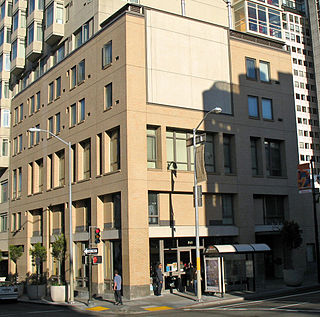 W
WThe International Hotel, often referred to locally as the I-Hotel, was a low-income single-room-occupancy residential hotel in San Francisco, California's Manilatown. It was home to many Asian Americans, specifically a large Filipino American population. Around 1954, the I-Hotel also famously housed in its basement Enrico Banduccci's original "hungry i" nightclub. During the late 60s, real estate corporations proposed plans to demolish the hotel, which would necessitate displacing all of the I-Hotel's elderly tenants. In response, housing activists, students, community members, and tenants united to protest and resist eviction. All the tenants were evicted on August 4, 1977 and the hotel was demolished in 1981. After the site was purchased by the International Hotel Senior Housing Inc., it was rebuilt and opened in 2005. It now shares spaces with St. Mary's School and Manilatown Center.
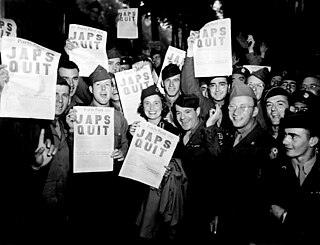 W
WJap is an English abbreviation of the word "Japanese". Today, it is generally regarded as an ethnic slur among Japanese minority populations in other countries, although English-speaking countries differ in the degree to which they consider the term offensive. In the United States, Japanese Americans have come to find the term very controversial or extremely offensive, even when used as an abbreviation, after the events of the internment of Japanese Americans. In the past, Jap was not considered primarily offensive; however, following the Attack on Pearl Harbor and the Japanese declaration of war on the United States, the term became derogatory. Nisei veterans who served in World War II were shunned with signs that read "No Japs Allowed" and "No Japs Wanted", denied service in shops and restaurants, and had their homes and property vandalized.
 W
WJohn Chinaman was a stock caricature of a Chinese laborer seen in cartoons of the 19th century. Also referenced by Mark Twain and popular American songs of the period, John Chinaman represented, in western society, a typical persona of China. He was typically depicted with a long queue and wearing a coolie hat.
 W
WMaking Tracks is an Asian American musical theater production by Second Generation, a New York-based theater company, with music by Woody Pak, lyrics by Brian Yorkey, and concept and book by Welly Yang.
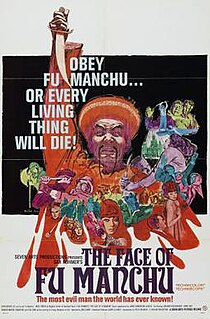 W
WDr Fu Manchu is a fictional villain who was introduced in a series of novels by the English author Sax Rohmer during the first half of the 20th century. The character was also extensively featured in cinema, television, radio, comic strips and comic books for over 90 years and he has also become an archetype of the evil criminal genius and mad scientist, while lending his name to the Fu Manchu mustache.
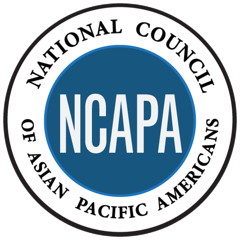 W
WThe National Council of Asian Pacific Americans (NCAPA) is a coalition of 35 national Asian-Pacific American organizations in the United States. Founded in 1996 and based in Washington D.C., NCAPA seeks to expand the influence of Asian-Pacific Americans in the legislative and legal arenas, and enhance the public's and mass media's awareness and sensitivity to Asian-Pacific American concerns.
 W
WThe Naturalization Act of 1790 was a law of the United States Congress that set the first uniform rules for the granting of United States citizenship by naturalization. The law limited naturalization to "free white person[s] ... of good character", thus excluding Native Americans, indentured servants, slaves, free blacks and later Asians, although free blacks were allowed citizenship at the state level in a number of states.
 W
WThe Naturalization Act of 1870 was a United States federal law that created a system of controls for the naturalization process and penalties for fraudulent practices. It is also noted for extending the naturalization process to "aliens of African nativity and to persons of African descent" while also maintaining exclusion of the process to naturalized Chinese Americans and other groups.
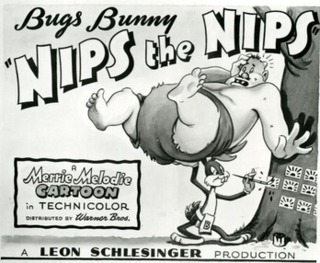 W
WNip is an ethnic slur against people of Japanese descent and origin. The word Nip is an abbreviation from Nippon (日本), the Japanese name for Japan.
 W
WEvelyn Okubo was a Japanese-American sansei teenager killed during the 1970 convention of the Japanese American Citizens League (JACL) at the Palmer House hotel in Chicago. Her 17-year-old roommate, Ranko Carol Yamada, was also severely wounded, yet survived. The murder caused a significant stir within the Japanese-American community, in part because Yamada alleged that the killer was Black, just at the height of violence associated with the Black Panther Party. The killer was never found.
 W
WPhilippine Republic Day, also known as Philippine–American Friendship Day, is a commemoration in the Philippines held annually on July 4. It was formerly an official holiday designated as Independence Day, celebrating the signing of the Treaty of Manila, which granted Philippine independence from the United States of America in 1946.
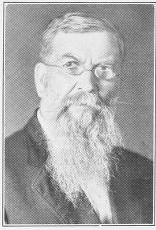 W
WGreenberry George Rupert (1847-1922), generally known as G. G. Rupert, was an American Adventist pastor and writer associated with British Israelism and Dispensationalism. He published a number of books which attempted to interpret history from a biblical literalist and millenarian perspective. Rupert's theories were a seminal influence on the 20th-century evangelist Herbert W. Armstrong. His religious ideology was linked to a theory that the Last Days would see a power struggle between the "Orient" and the "Occident", a view that helped to fuel the Yellow Peril panic.
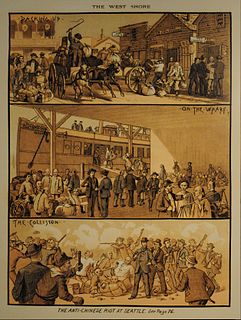 W
WThe Seattle riot of 1886 occurred on February 6–9, 1886, in Seattle, Washington, amidst rising anti-Chinese sentiment caused by intense labor competition and in the context of an ongoing struggle between labor and capital in the Western United States. The dispute arose when a mob affiliated with a local Knights of Labor chapter formed small committees to carry out a forcible expulsion of all Chinese from the city. Violence erupted between the Knights of Labor rioters and federal troops ordered in by President Grover Cleveland. The incident resulted in the removal of over 200 Chinese civilians from Seattle and left two militia men and three rioters seriously injured.
 W
WStereotypes of East Asians in the United States are ethnic stereotypes found in American society about first-generation immigrants, and American-born citizens whose family members immigrated to the United States, from East Asian countries as well as some Southeast Asian countries. Stereotypes of East Asians, like other ethnic stereotypes, are often portrayed in the mainstream media, cinema, music, television, literature, internet, and other forms of creative expression in American culture and society.
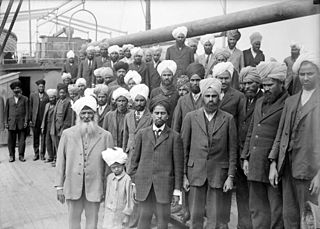 W
WStereotypes of South Asians are broadly believed impressions about individuals of South Asian origin that are often inconsistent with reality. While the impressions are wrongly presumed to be universally true for all people of South Asian origin, these stereotypes adversely affect the South Asians as well as the acculturation process.
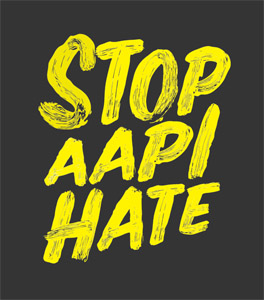 W
WStop AAPI Hate is a nonprofit social organization that runs the Stop AAPI Hate Reporting Center which tracks incidents of discrimination, hate and xenophobia against Asian Americans and Pacific Islanders (AAPI) in the United States. The organization was formed in 2020 in response to increased racially motivated violence against Asian people as a result of the COVID-19 pandemic in the United States.
 W
WTie a Yellow Ribbon is a 2007 award winning film by Korean-American director and writer, Joy Dietrich.
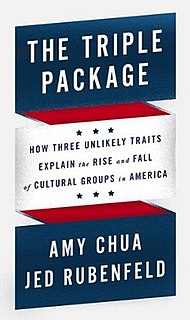 W
WThe Triple Package: How Three Unlikely Traits Explain the Rise and Fall of Cultural Groups in America is a book published in 2014 by two professors at Yale Law School, Amy Chua and her husband, Jed Rubenfeld. Amy Chua is also the author of the 2011 international bestseller, Battle Hymn of the Tiger Mother.
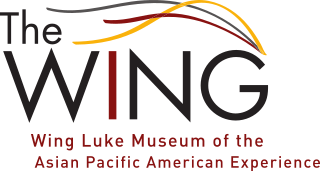 W
WThe Wing Luke Museum of the Asian Pacific American Experience is a history museum in Seattle, Washington, United States, which focuses on the culture, art and history of Asian Pacific Americans. It is located in the city's Chinatown-International District. Established in 1967, the museum is a Smithsonian Institution affiliate and the only pan-Asian Pacific American community-based museum in the country. It has relocated twice since its founding, most recently to the East Kong Yick Building in 2008. In February 2013 it was recognized as one of two dozen affiliated areas of the U.S. National Park Service.
 W
WThe Yellow Peril is a racist color-metaphor that represents East Asian peoples as an existential danger to the Western world. As a psycho-cultural menace from the Eastern world, fear of the Yellow Peril is racial, not national, a fear derived not from concern with a specific source of danger or from any one people or country, but from a vaguely ominous, existential fear of the faceless, nameless hordes of "yellow people" in the Asia-Pacific opposite the Western world. As a form of xenophobia, the Yellow Terror is fear of the Oriental, non-white Other, a racialist fantasy presented in the book The Rising Tide of Color Against White World-Supremacy (1920), by Lothrop Stoddard.
 W
WI. Y. Yunioshi is a fictional character in Blake Edwards' 1961 American romantic comedy film Breakfast at Tiffany's, which was adapted for the screen by George Axelrod based on Truman Capote's 1958 novella of the same title. The character in the film is significantly different from the character as presented in Capote's original novella, and the film version of Mr. Yunioshi, as portrayed by Mickey Rooney, has been the subject of extensive critical commentary and review since its theatrical release due to its utilization of ethnic stereotypes.